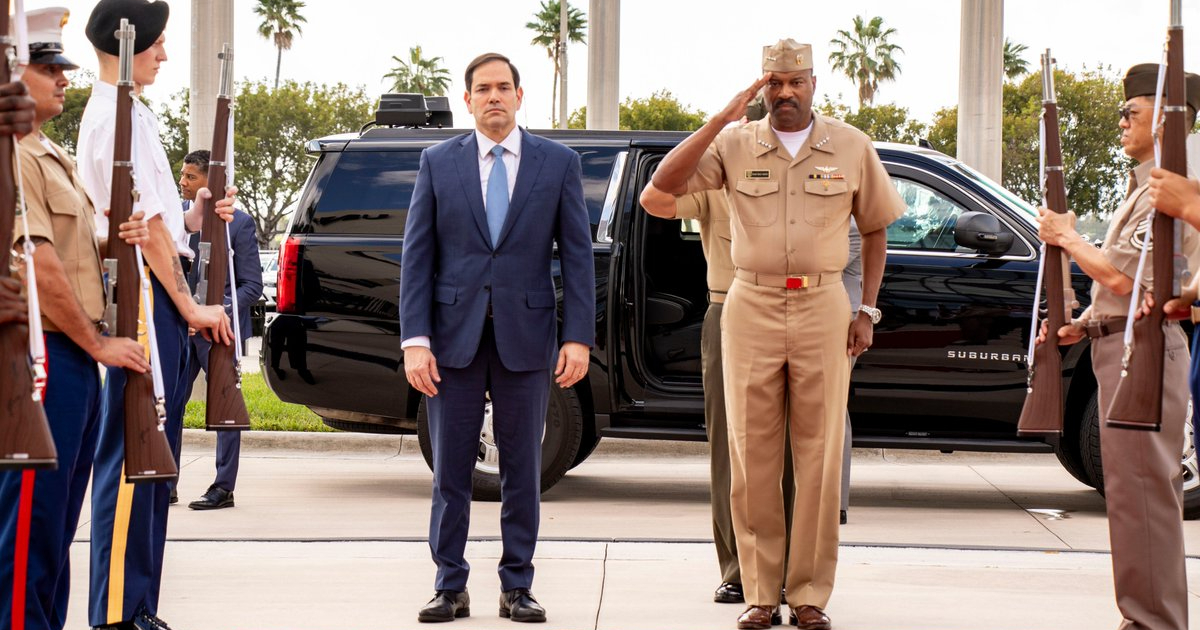
Related videos:
The United States Secretary of State, Marco Rubio, visited the Southern Command headquarters in Florida this Friday, where he met with Admiral Alvin Holsey and other command leaders to discuss Washington's priorities in Latin America and the Caribbean, as well as the challenges regarding regional security.
During the meeting, strategies were discussed to strengthen cooperation in defense and stability in the region, in the context of growing concern over irregular migration and the influence of foreign actors in the hemisphere.
Rubio was joined by representatives from the State Department and other government agencies, underscoring the importance that the U.S. administration places on these issues.
"The 'America First' policy involves looking at our own region. Our joint effort of focused diplomacy and military excellence makes the United States safer and stronger," Rubio stated after the meeting.
The visit is part of a tour by the Secretary of State through Latin America, aimed at coordinating efforts with allied governments to address common challenges in security and development.
Southern Command, based in Doral, Florida, is the entity responsible for military cooperation of the United States in the Western Hemisphere. Its work is crucial in executing defense strategies and providing assistance to allied countries in the fight against organized crime and other transnational threats.
The recent meeting between Rubio and Admiral Holsey is part of a series of actions that reflect Washington's increasing focus on security and stability in Latin America and the Caribbean.
In January 2025, Mike Hammer, the head of the U.S. Embassy in Havana, met with leaders of SOUTHCOM in Miami to discuss issues related to Cuba, national security, and human rights in the Western Hemisphere.
Furthermore, in June 2024, the fast attack submarine USS Helena made a port visit to Guantánamo Bay, as part of a SOUTHCOM mission for global maritime security and national defense.
Although the Cuban regime was informed in advance, it expressed its discontent with the presence of such a vessel in its territory, highlighting the military occupation of the naval base as "illegal and unacceptable."
These actions take place in a context where Southern Command has pointed out the influence of external actors in the region. In March 2022, General Laura Richardson, then head of SOUTHCOM, stated that Cuba exerts a "corrosive influence" in Latin America, providing political, military, and intelligence support to regimes such as that of Venezuela.
In August 2021, Admiral Craig Faller, then head of the United States Southern Command, lamented that the protests on July 11 in Cuba were silenced. "I feel for the Cuban people, they deserve a better government and they deserve their freedoms; they tried to exercise those freedoms and were clearly silenced," Faller stated.
These statements reflect the United States' concern about the human rights situation in Cuba and the influence of external actors in the region. The recent meeting between Marco Rubio and Admiral Alvin Holsey highlights the ongoing relevance of these issues on the U.S. security and foreign policy agenda toward Latin America and the Caribbean.
Filed under: